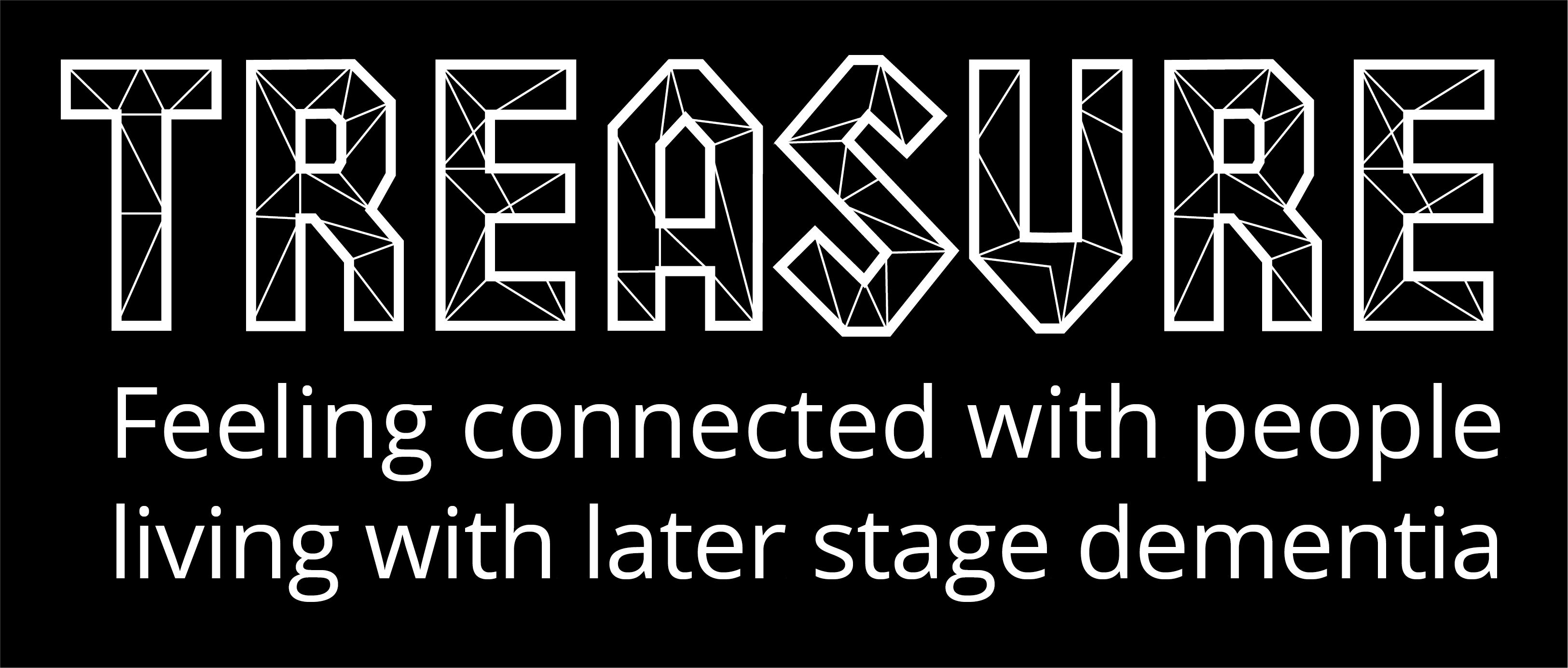we care about language
We believe that words are powerful… words create worlds… in that the words we choose to describe people, our experiences and the world around us can positively or negatively shape how we engage with one another. In developing the Treasure project resources we have strived to be mindful of the potential power of language; we have sought to use words and language in this project which move us closer to our desire for how people in the later stages of dementia are valued by wider society.
We also acknowledge the limitations of verbal language, and recognise that communication continues in the absence of words. We are curious about how we can re-connect with our innate ability to connect with others in ways which don’t rely on spoken words.
The Language of Dementia and Being ‘Lost’
In the Treasure project we have placed particular emphasis on the connections that are possible with people in the later stages of dementia (further information at end of page regarding features of later stages of dementia). There are a number of alternative phrases in use for this stage of dementia including people with advanced dementia or severe dementia. In the Treasure project we have used the term ‘person in the later stages of dementia’ as we deem this to be quite neutral language.
The Language of ‘Lost’
Disease progression in dementia significantly impacts on a person’s ability to express themselves verbally. This affects the ways people can be understood by others as well as a person’s ability to process what other people have said. An impact of this can be that assumptions are made about the possibilities for connecting with people in the later stages of dementia.
You may have heard and so a language has developed, out of people’s experiences, of the person with dementia being described as being ‘lost’ to those around them.
One of the reasons for this is the idea that we live in a ‘hypercognitive society’ where the possibilities for connecting with people are generally focused on what we say and do. Whilst verbal communication is altered, a person in the later stages of dementia continues to communicate in non-verbal ways. They still have the potential to offer us the treasure we seek; the moments in relationships when we feel connected with one another.
In this project we wanted to find a language that acknowledges the multiple significant losses that are experienced by people living with advanced dementia, and their family and friends whilst also holding the assertion that connection is possible- that all is not lost.
As you browse the website and resources, we invite you to be on the look-out for the language used and notice how it lands with you and
The Word Disruption
Disruption for us is that ‘aha’ feeling you get when your perceptions and assumptions are positively stretched in new directions. Our understanding of ‘disruption’ is that it is found in ideas, experiences and materials which stretch us to think anew about something that we perhaps hadn’t previously considered, had taken for granted, or had come to certain conclusions about.
As you browse the website and resources, we invite you to notice anything that sparks your interest or leads you to have a fresh perspective.
later stages of dementia
In the later stages of dementia, also referred to as advanced or severe dementia, a person is likely to experience increased frailty with significant communication issues, memory problems, reduced or limited mobility and is expected to require support with eating, washing, dressing and attending to personal care with toileting.


